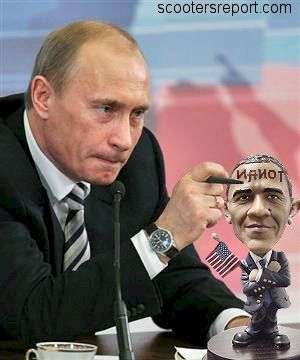This is really interesting. It seems that the only articles getting published in ‘peer review’ journals are those that support the Climate Change/Global Warming. This way everyone (Politicians especially) can point and say that all the published data supports our agenda, because there’s nothing supporting the other side…..TonyfromOz.
Professor Ross McKitrick on how “peer review” has corrupted the global warming debate:
Starting in 2007, I spent two years trying to publish a paper to refute an important claim in the IPCC’s Fourth Assessment Report (on how real-world data allegedly confirmed models predicting a recent man-made warming).
The claim in question was not just wrong but was based on fabricated evidence. Showing that the claim was fabricated was easy: it suffices merely to quote the section of the report, since no supporting evidence is given….
Showing that the IPCC claim is also false took some mundane statistical work, but the results were clear. Once the numbers were crunched and the paper was written, I began sending it to science journals. Having published several against-the-flow papers in climatology journals, I did not expect a smooth ride, but the process eventually became surreal. In the end, the paper was accepted for publication, but not in a climatology journal. Fortunately for me, I am an economist, not a climatologist, and my career doesn’t depend on getting published in climatology journals. If I were a young climatologist, I would have learned that my career prospects would be much better if I never wrote papers that question the IPCC. The skewing of the literature (and careers) can only be bad for society, which depends on scientists and the scientific literature for trustworthy advice for wise policy decisions….
Of course, differences of opinion exist and vigorous disputes play out among opposing camps. But what is happening in climate science is very different, or at least is on a much more intense scale. I know of no parallels in modern economics. It appears to be a profession-wide decision that, due to the conjectured threat of global warming, the ethic of scientific objectivity has had an asterisk added to it: there is now the additional condition that objectivity cannot compromise the imperative of supporting one particular point of view.
This strategy is backfiring badly: rather than creating the appearance of genuine scientific progress, the situation appears more like a chokehold of indoctrination and intellectual corruption.
The warning was sounded some years ago by Professor Edward Wegman, who led the Wegman Report into the discredited “hockey stick”:
One of the interesting questions associated with the ‚”hockey stick controversy’ are the relationships among the authors and consequently how confident one can be in the peer review process. In particular, if there is a tight relationship among the authors and there are not a large number of individuals engaged in a particular topic area, then one may suspect that the peer review process does not fully vet papers before they are published…
However, it is immediately clear that the Mann, Rutherford, Jones, Osborn, Briffa, Bradley and Hughes form a clique, each interacting with all of the others. A clique is a fully connected subgraph, meaning everyone in the clique interacts with every one else in the clique.
One of the interesting questions associated with the ‘hockey stick controversy’ are the relationships among the authors and consequently how confident one can be in the peer review process. In particular, if there is a tight relationship among the authors and there are not a large number of individuals engaged in a particular topic area, then one may suspect that the peer review process does not fully vet papers before they are published. ndeed, a common practice among associate editors for scholarly journals is to look in the list of references for a submitted paper to see who else is writing in a given area and thus who might legitimately be called on to provide knowledgeable peer review. Of course, if a given discipline area is small and the authors in the area are tightly coupled, then this process is likely to turn up very sympathetic referees. These referees may have coauthored other papers with a given author. They may believe they know that author’s other writings well enough that errors can continue to propagate and indeed be reinforced.
In the case of the “hockey stick”, Wegman and his team found the “clique” of gatekeepers to be no more than just 43 warmist scientists.
Andrew Bolt is a journalist and columnist writing for The Herald Sun in Melbourne Victoria Australia.
Andrew Bolt’s columns appear in Melbourne’s Herald Sun, Sydney’s Daily Telegraph and Adelaide’s Advertiser. He runs the most-read political blog in Australia and is a regular commentator on Channel 9′s Today show and ABC TV’s Insiders. He will be heard from Monday to Friday at 8am on the breakfast show of new radio station MTR 1377, and his book Still Not Sorry remains very widely read.
Read more excellent articles from Andrew Bolt’s Blog





Posted on Thu 04/21/2011 by PA Pundits - International
0